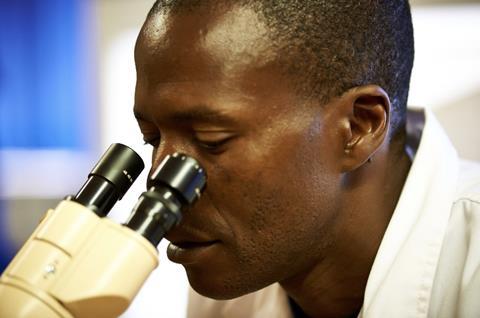Research efforts are underpinned by cutting-edge technology and thorough testing, says group safety and environment executive Johnathan Sutton
Westfalia Fruit’s world-renowned avocado research programme is making significant progress in improving the quality and sustainability of the company’s avocados.

The South Africa-based programme, run by a team of inhouse researchers, scientists and technicians who work with several academic research programmes globally, is focused on three key areas: rootstocks, reducing inputs and continuous development and exploration. The team recently welcomed Solomon Ntladi, a respected rootstock breeder based in South Africa.
For more than 40 years Westfalia has been researching disease-tolerant clonal rootstocks to develop superior avocado tree health and yields in varying local conditions that require minimal external inputs. The work requires significant investment as it can take 35 years to commercially develop a new variety. The process includes several years of planting trials in both nursery and orchard environments, with results continuously monitored throughout. With its diverse growing footprint, nursery and orchard trials are also duplicated across each growing area as the local natural environment is a key consideration.
“We’ve had ongoing success with existing avocado rootstocks such as Latas and Dusa, which offer high root-rot tolerance and higher yields,” says group safety and environment executive Johnathan Sutton. “Dusa also offers some salinity tolerance and it’s been the top seller among clonally propagated rootstocks worldwide with more than 1.5m Dusa trees sold annually.”
Leola and Zerala are also new rootstocks that were introduced to the market in 2020. With these, Sutton explains, Westfalia can support growers with higher yielding rootstocks developed to suit a range of specific growing conditions around the world.
“Zerala is the rootstock of choice for growing in areas facing salinity challenges. Ongoing trials in Peru are showing very positive outcomes and the first trees are scheduled to be planted in 2024,” he says.
Another strand of Westfalia’s work is research into reducing synthetic fungicides in the harvesting process by breeding plant genetics to be more tolerant to pests and diseases, as well as well as plant-based treatments.
“These plant-based treatments are natural fruit sterilants like mineral or plant-based oils such as thyme or citrus oil. We currently have four or five different trials running using natural fungicides across Westfalia’s global operations in Europe and beyond,” Sutton continues.
“These trials are a good demonstration of how we approach research at Westfalia, based on our founder, Hans Merensky’s philosophy. In a three step process we carry out thorough research, take that into demonstration trials and then move to commercialisation if the first two steps are successful. There is no place in our business for new technology or science without thorough and measured testing. This formula helps us to achieve success.”
Some of the work undertaken by the team can be less reliant on technology and laboratory work, for example plant spacing in orchards, which examines how different spaces between trees can affect yield and tree health.
Recent trials suggest that wider gaps of 4 metres may be beneficial for specific cultivars – whilst some cultivars preferred 2-metre gaps – highlighting that not all are the same and trials must be tailored and recorded for different cultivars, environments and other variables.
Irrigation, feeding, husbandry techniques are also continuously questioned and examined to determine best practice for tree health, yield, quality and the environment.



